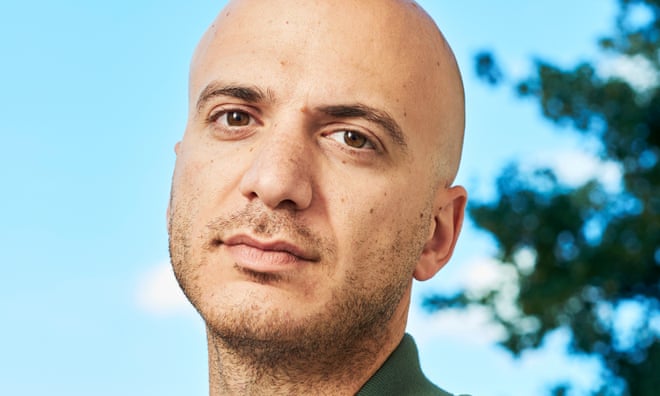Hassan Akkad on his lasting memories from Whipps Cross

Hassan Akkad has become something of a celebrity since his time working as a cleaner at Whipps Cross Hospital during the Covid-19 pandemic. He recently spoke to The Guardian about his experiences, both in Damascas and in London, and what lasting memories he will take from his time here.
There have been times in the past 10 years, Hassan Akkad says, that his life has felt more like a movie. Thinking that occasionally kept him sane – and, more important, kept him going.
Akkad’s walk-on part in world events began in 2011, when as a young English teacher he put himself in the frontline of Arab spring democracy protests in his native Syria. He was beaten and imprisoned by the regime – and at one point given a face-to-face audience with Bashar al-Assad, his torturer, to plead his case. Having fled Damascus in fear of his life during the civil war, Akkad became for three years one of those 12 million “displaced persons” searching for a home on the six o’clock news. Unflinching cameraphone clips of his long journey to Britain – clinging to a sinking people-smuggler dinghy off the coast of Turkey, en route to the “Jungle” in Calais – made the most vivid and affecting footage of the BBC’s Bafta-winning Exodus: Our Journey to Europe series.
Sitting in the shared garden of his flat last week, Akkad was wondering what the script of his life might involve next. He laughs about the more surreal aspects of his recent profile: the fact that the pop star Dua Lipa had chosen him as her national hero in GQ in June; his emotional appearance before Piers Morgan on Good Morning Britain that not only helped to fuel the £35,000 he raised for Barts Charity, but seemed instrumental in Morgan’s recent incongruous soul-searching (“We can all be better people after this, Hassan. I do not exclude myself. I think it’s brought so much perspective, I really do”). If Captain Tom had been Morgan’s ghost of Christmas Past, Akkad, aged 32, seemed to represent to him a vision of a kinder, more inclusive future.
Akkad initially responded to the recruitment drive for cleaning and portering staff at Whipps Cross Hospital, 10 minutes up the road, because he felt he needed to play his part in the emergency. There was a shortage of staff because so many NHS workers were falling ill. When he began, 90% of the admissions were Covid-19 patients. He has been detained in Syrian jails, but even so, he says: “I don’t think I have ever been as scared walking into a building as I was that first day in April. Back then the level of uncertainty was very high.”
His British Ghanaian boss, Albert, who had worked the ward for 15 years, became his mate. They would arrive at seven in the morning, get into their scrubs and then get to work disinfecting everything you could see, “all the hotspots, the light switches, the toilets and the bed frames of the patients, some of whom were dying”. He was doing eight hours a day, five days a week, then coming home to his flat here and staying put, not even risking going to the shops.
In the course of his work, Akkad started to take pictures of his colleagues, which appeared in an article he wrote for Politico magazine. His friendship made the nurses and the cleaners come alive on the page. “We were 18 people on the wards, and we came from 12 countries,” he says. What sustained them was the chats that they would have during breaks. His friend and colleague Gimba, the ward host, would make her signature Nigerian jollof rice and boast about it over lunch; Akkad would make the counter-argument for hummus and falafel.
Working in the NHS in the past months has, he suggests, helped him to access some of the trauma he had previously experienced properly for the first time – “the hospital was intimidating but also oddly empowering in some ways,” he says. Having seen the worst of humanity, he now saw some of the best among his colleagues. “I witnessed a lot of people die, but also a lot recover and go home to their loved ones, and I played a small role in making that happen.” That small sense of agency, even in the crisis, contrasted with a decade in which the extreme circumstances of his life had often been beyond his control. “I came out of working at the hospital able to tell people that I am not a victim,” he says.
We thank Hassan for his work at Whipps Cross and we're grateful for his contributions to Barts Charity. We wish him luck in the next chapter of his life.
